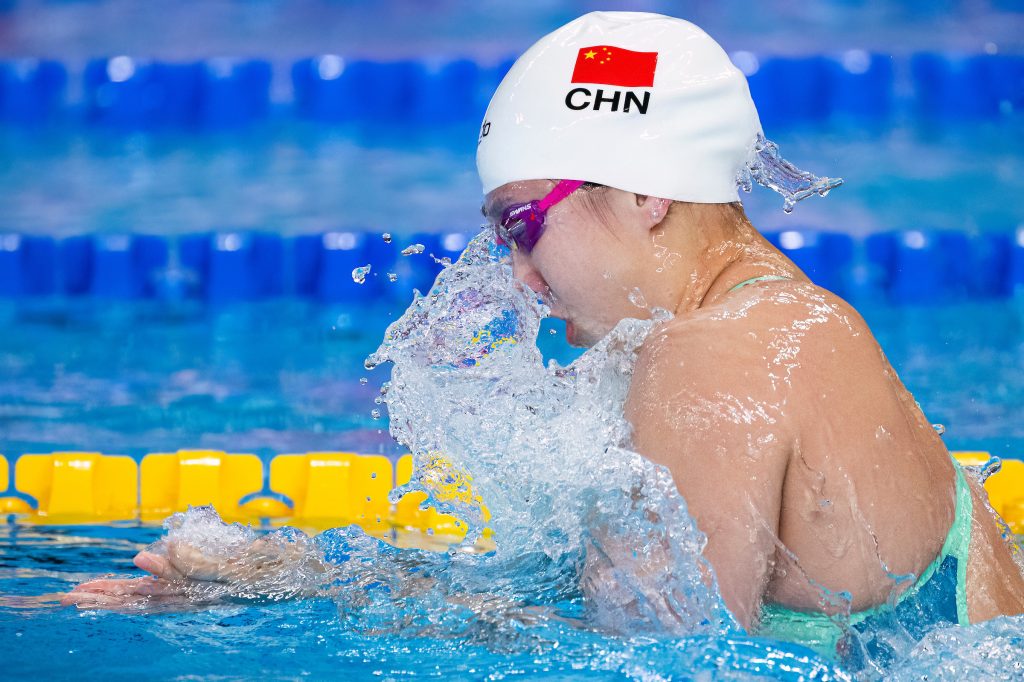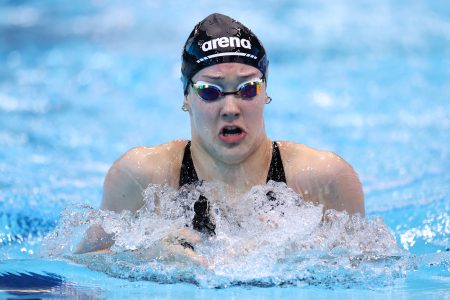Who Could Emerge as 100 Breaststroke Queen in 2025?

Who Could Emerge as 100 Breaststroke Queen in 2025?
The last six global-level long course competitions have all seen a different swimmer earn the top step of the podium. That trend began following the 2019 World Championships, which marked the last gold medal for Lilly King in the 100 breaststroke. At the pandemic-delayed Tokyo Olympics, King’s American teammate Lydia Jacoby won gold in upset fashion, and the world titles in 2022, 2023 and 2024 went to Italy’s Benedetta Pilato, Lithuania’s Ruta Meilutyte and China’s Tang Qianting, respectively.
Finally, South Africa’s Tatjana Smith came out on top in a tightly-contested Paris Olympic final, adding to the 200-meter gold she won three years earlier. We know Smith won’t continue her reign atop the event in 2025 since she announced her retirement following the Olympics, and no one has posted any especially swift times in the early going of 2025.
The five previous winners along with 2015 world champion Yuliya Efimova are all still active, but none rank among the top-10 performers in the world this year. King has the best time out of that group at 1:06.67, good for No. 12 globally, but even if she put forth a miracle run back to the top of the event, the 28-year-old has indicated she will retire prior to the Los Angeles Olympics.
Pilato’s best time this year ranks just fifth among Italian swimmers while Meilutyte has struggled over 100 meters since her surprise world title in 2023, although she has remained strong in the 50. Jacoby and Tang have yet to record any official long course times thus far in 2025, but the 21-year-old from China entered the year with plenty of momentum: she won silver behind Smith in Paris and finished the year ranked first in the world for both long course and short course, the latter time posted on the way to gold at the Short Course World Championships in December.

Angharad Evans — Photo Courtesy: Aquatics GB
Meanwhile, the swimmers who have shot up the world rankings in the early going this year have combined for zero Olympic medals and just one at the long course version of the World Championships. The lone medalist is Germany’s Anna Elendt, a University of Texas-trained swimmer who earned a surprise silver at the 2022 Worlds followed by a short course global bronze later that year. Elendt’s time is second in the world this year behind Angharad Evans, a 21-year-old from Great Britain who swam a national-record time of 1:05.37 at her national selection meet last month.
Anita Bottazzo, fresh off a strong freshman season for the University of Florida, has hopes of excelling for her native Italy this year. Bottazzo clocked 1:05.82 in the long course event last month, and Finland’s Eneli Jefimova, the bronze medalist at Short Course Worlds last year, has a best of 1:05.86 this year. A second Italian, Lisa Angiolini, ranks fifth in the world (1:06.01), just ahead of the Russian swimmer who owns the world record in the 200 breast, Evgeniia Chikunova (1:06.13).
Further down the rankings, the American trio of Kate Douglass, Emma Weber and King all have 2025 bests between 1:06.51 and 1:06.67, and the U.S. team will surely hope for a standout to emerge to fill out a likely-dominant 400 medley relay team. Ireland’s Mona McSharry, the Olympic bronze medalist last year, took the fall season off but returned to put together a strong spring semester at the University of Tennessee before clocking 1:06.87 in long course in April.
Expect the contenders for this year’s world title to emerge from this pack, but there are few indications of who will stand out. This will be one of few events at the upcoming World Championships in Singapore in which last year’s Olympic champion will not compete, and plenty of swimmers have recorded marks around the 1:05-mid standard that has been required for contention at major meets in recent years.
The 100 breaststroke has become one of the weaker women’s events internationally in terms of time but also one of the deepest events, with room for new leaders to step forward this year and beyond.



